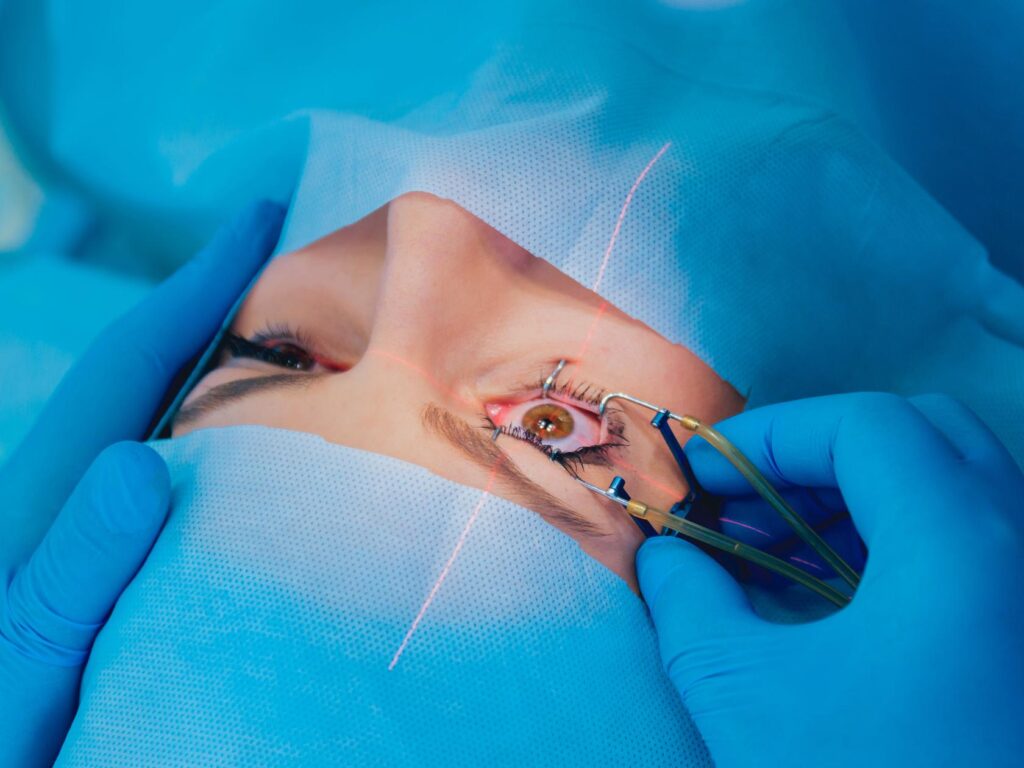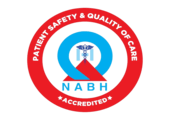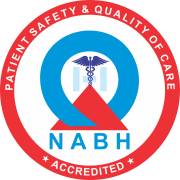When to do LASIK Treatment?
If you’re tired of wearing eyeglasses or contact lenses, you may wonder whether LASIK surgery is right for you. LASIK is a type of refractive eye surgery to get rid of your glasses or contact lens.
LASIK Eye surgery may mean no more corrective lenses. Learn from our experts whether you’re a good candidate for this procedure and what to consider as you weigh your decision.
LASIK surgery has a good track record. Complications that result in a loss of vision are rare, and most people are satisfied with the results. Certain side effects, particularly dry eyes and temporary visual disturbances are fairly common. But these usually clear up after a few weeks or months, and very few people consider them to be a long-term problem.
Your results depend on your refractive error and other factors. People with mild nearsightedness tend to have the most success with refractive surgery. People with a high degree of nearsightedness or farsightedness along with astigmatism have less predictable results.
In general, most people who have laser-assisted in-situ keratomileusis (LASIK) eye surgery achieve 20/25 vision or better, which works well for most activities. But most people still eventually need glasses for driving at night or reading as they get older.

What does LASIK eye surgery involve?
Normally, images are focused on the retina in the back of your eye. With nearsightedness (myopia), farsightedness (hyperopia) or astigmatism, they end up being focused elsewhere, resulting in blurred vision.
- Nearsightedness (myopia): It is a condition in which you see nearby objects clearly, but distant objects are blurry. When your eyeball is slightly longer than normal or when the cornea curves too sharply, light rays focus in front of the retina and blur distant vision. You can see objects that are close more clearly, but not those that are far away.
- Farsightedness (hyperopia): Far-sightedness is a condition in which you can see far objects clearly, but nearby objects are blurry. When you have a shorter than average eyeball or a cornea that is too flat, light focuses behind the retina instead of on it. This blurs near vision and sometimes distant vision.
- Astigmatism: It causes overall blurry vision. When the cornea curves or flattens unevenly, the result is astigmatism, which disrupts focus of near and distant vision.
Traditionally, blurry vision is corrected by bending (refracting) light rays with glasses or contact lenses. But reshaping the cornea (the dome-shaped transparent tissue at the front of your eye) itself will also provide the necessary refraction and vision correction.
Your eye surgeon will ask detailed questions about your eye health and evaluate your eyes to make sure you don’t have any conditions that might result in complications or poor outcomes of surgery.
What happens before LASIK surgery?
Before a LASIK procedure, your eye surgeon will assess detailed measurements of your eye. Most commonly, the surgeon creates a flap in the cornea and then raises it up before reshaping the cornea with the Excimer laser. With each pulse of the laser beam, a tiny amount of corneal tissue is removed, allowing your eye surgeon to flatten the curve of your cornea or make it steeper.
There are also variations in which a very thin flap is raised or no flap is used at all . Each technique has advantages and disadvantages and your eye surgeon will decide what suits you the best.
Most people who undergo LASIK surgery will have good to excellent vision in most situations, for many years or decades. You’ll be able to play sports and swim, or even just see the clock first thing in the morning, without having to worry about your glasses or contact lenses. But as you get older or in low-light conditions, you may still need to wear glasses.
Shekar Eye Hospital’s expertise
Looking for best Lasik eye surgery in India? We at Shekar eye hospital offer Contoura WaveLight LASIK treatment which is best in class and state of the art technology. It is US FDA approved, involves the shortest treatment time with high precision and exceptional outcomes. The treatment will take about 15 minutes for both eyes. It is an absolutely painless procedure with quick recovery and simple post operative management. We also specialize in all kinds of eye surgery including;
Contact your eye doctor to know if you are the right candidate for LASIK treatment and bid adieu to your glasses or contact lens.








